Positive Psychology & Film: Flow
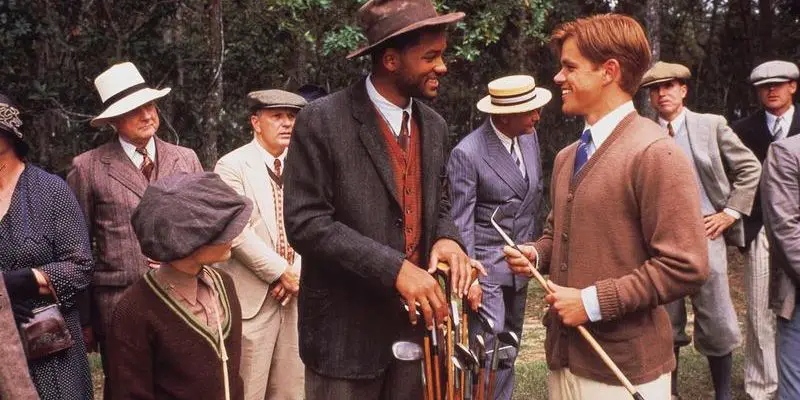
Laurie Agard studied Psychology and Writing in graduate school after…
“Inside each and every one of us is one true authentic swing … Somethin’ we was born with … Somethin’ that’s ours and ours alone … Somethin’ that can’t be taught to ya or learned … Somethin’ that got to be remembered. Over time the world can rob us of that swing. It get buried inside us under all our wouldas and couldas and shouldas. Some folk even forget what their swing was like …”
Bagger Vance in The Legend of Bagger Vance
Researchers in the science of Positive Psychology now place the state of “flow” at front and center stage in their quest for well-being and “the good life.” Simply put, flow is the experience of engagement or of working at full capacity.
Optimal Balance
In their book Positive Psychology: The Science of Happiness and Flourishing, Compton and Hoffman explain flow in more detail. They follow the extensive research conducted by psychologist Mihaly Csikszentmihaly in this field and how it lead him to define the construct, “Flow denotes the holistic sensation present when we act with total involvement … It is the state in which action follows upon action according to an internal logic which seems to need no conscious intervention on our part. We experience it as a unified flowing from one moment to the next, in which we feel in control of our actions, and in which there is little distinction between self and environment; between stimulus and response; or between past, present, and future.”
Studies reveal that in order to experience flow you need to have an optimal balance between challenge and skill. In other words, it’s not the mastery of the activity that’s important, but rather that you are challenged and you meet the challenge with your skill. Although flow can be experienced at work or play, it’s generally experienced when the activities you are engaged in are voluntary.
Experiencing Flow
Part of the flow experience, Csikszentmihaly theorizes, is a lack of internal conflict between competing goals. In addition, “the ability to control consciousness and increase the probability of optimal experiencing can also create an increase in a sense of mastery and participation in life, and an ability to determine the content of life on a moment-by-moment basis.” Positive psychologists believe that an ability to control the contents of consciousness can give people an independence from the social environment so that external circumstances don’t necessarily interrupt and impact a person’s intellectual or emotional states.
When a person is experiencing flow, time passes swiftly. It can’t really be described as an emotional state because the invigorating and joyful feelings come after the flow experience has ended. Many people describe it as a sensation of almost losing a sense of self. Positive psychologists believe flow and this “un-self conscious absorption” is one key path to happiness, and that people seeking to elevate their sense of well-being should dedicate more time to pursuits that produce the state of flow.
Films Exhibiting Flow
If you can’t readily identify which activities you experience flow with, keep track of how you spend your leisure time. This often holds the key. For example, I discovered I regularly experience flow when I garden or write. I didn’t realize this until I began taking notes about which activities made me lose track of time and then gave me a sustained sense of well-being afterwards. Watching films gave me new insights, too.
[bctt tweet=”Characters in-flow are characters who can get their sense of self-consciousness ‘out of the way’.” username=”FilmInquiry”]As you watch the following films, try and find flow. Interestingly, I’ve found it easier and more common to spot rich and compelling moments of flow in films that are about musicians, dancers, athletes, and chess players. On some level, films that exhibit characters experiencing flow seem to be about characters who are able to get their sense of self-consciousness “out of the way” and who let their body perform without their self butting in with evaluations.
Billy Elliot (2000)
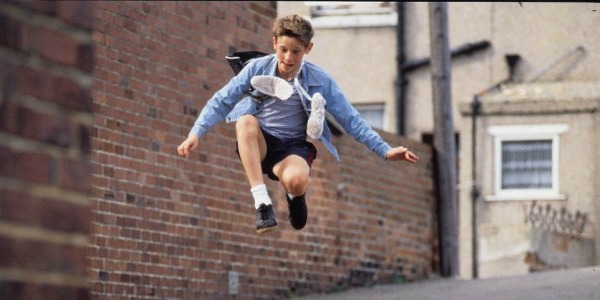
Character Strengths and Virtues: creativity, curiosity, hope, perseverance, zest.
Themes: flow, dance, passion for learning, struggling with father and culture who have masculine stereotypes.
My Life Without Me (2003)
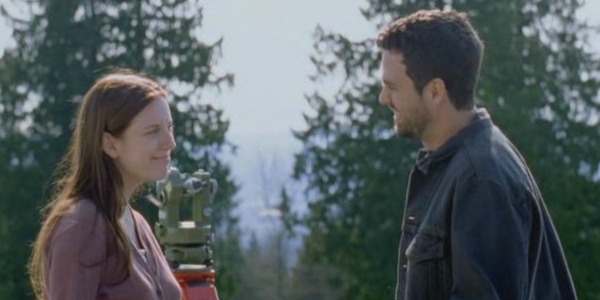
Character Strengths and Virtues: transcendence, appreciation of natural beauty.
Themes: ovarian cancer, savoring, flow.
Trumbo (2015)
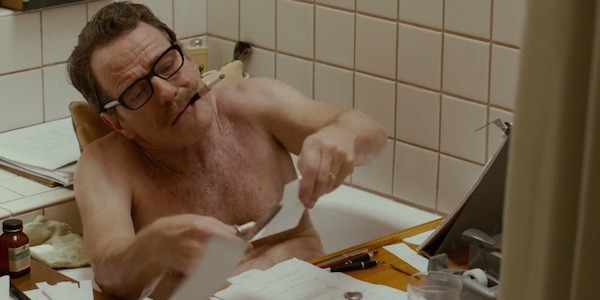
Character Strengths and Virtues: creativity, perseverance, humanity, family teamwork, zest, resilience.
Themes: Hollywood, screenwriting, artists blacklisted for their political beliefs, flow.
The Legend of Bagger Vance (2000)
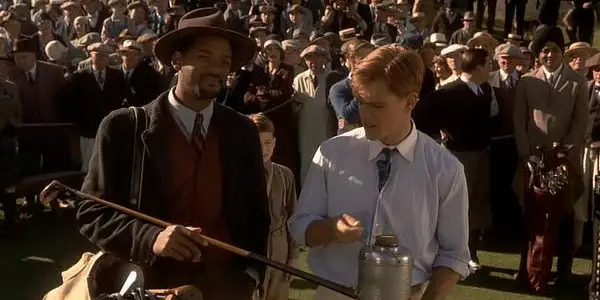
Character Strengths and Virtues: courage, honesty, hope, mindfulness, integrity, patience.
Themes: flow, caddy coaches golfer out of his slump, “finding your authentic swing.”
The construct of flow has changed not only how I look at activities like gardening and writing, but how much time I dedicate to them. It’s also altered how I perceive and what I evaluate as important in game playing and sports. As a culture we tend to view the importance of these activities in the light of goal-achievement and link that success with well-being.
However, the state of flow focuses on the opposite end of that spectrum. Achieving flow is more about a temporary forgetting of self. Its focus leans more toward an appreciation of our current experience rather than trying to better it and alter it, although often achievement is the result. American author Willa Cather once wrote, “Miracles … seem to me to rest … upon our perceptions being made finer, so that for a moment our eyes can see and our ears can hear what is there about us always.” I agree.
I think it’s worth thinking about factors that facilitate an appreciation of the moment and how that affects our well-being. Can viewing films in this light help us do that? What do you think?
Positive Psychology & Film Series
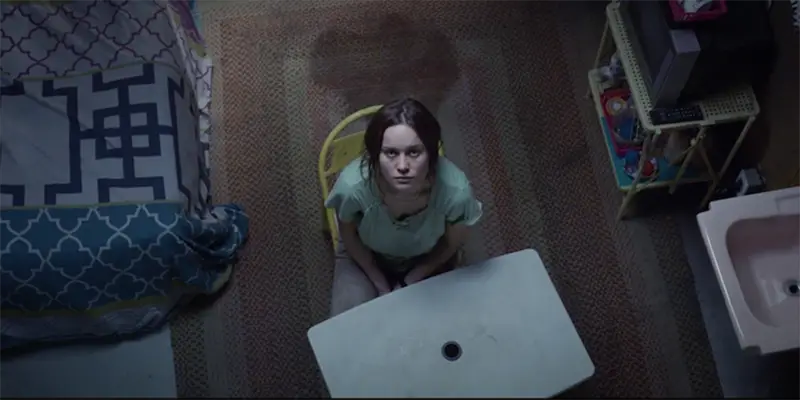
Positive Psychology And Film
You can improve your life by paying attention to how films use characters and themes to explore human values, virtues, and character strengths.

Positive Psychology & Film: Love
“Human beings are starved for love.” – Erich Fromm This article is part of a series. Find the first part here.
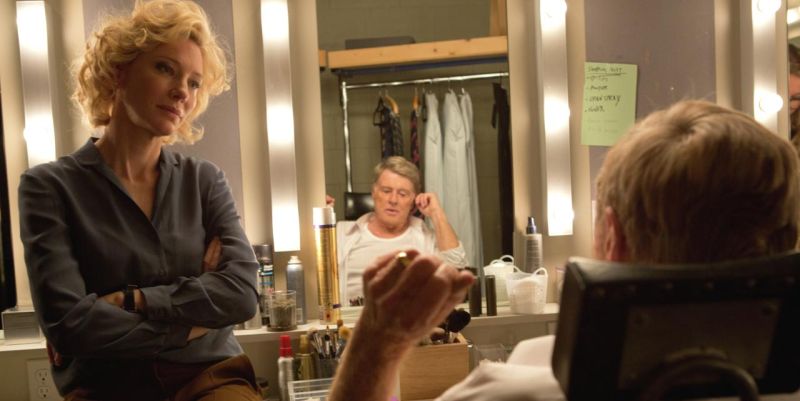
Positive Psychology & Film: Women’s Careers
A common stereotype in film is that women don’t work and have no career. What can we learn from the films in which women’s careers are at the forefront?
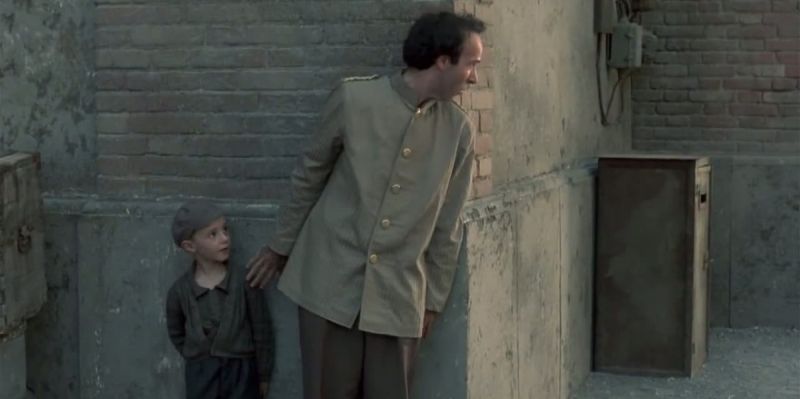
LIFE IS BEAUTIFUL: Through The Lens Of Positive Psychology
In this part of Positive Psychology & Film, Laurie Agard interprets Life Is Beautiful, the inspiring and gut-wrenching Italian war film.
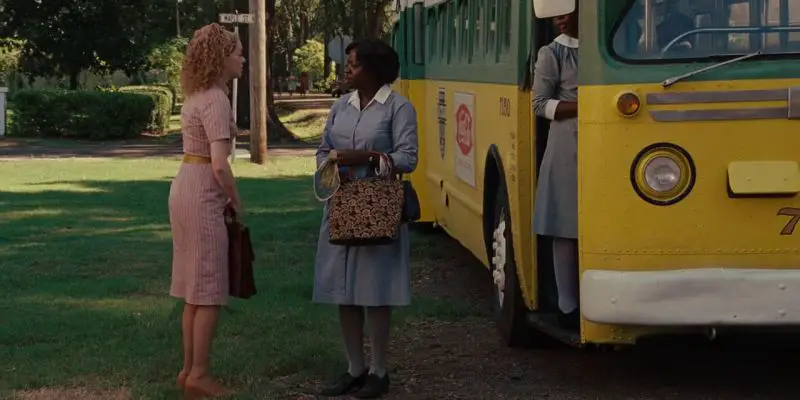
Positive Psychology & Film: Films Featuring Ethnic Minorities
It’s critical that media show that all people belong. However, very few films in the United States are made by and about ethnic minorities.
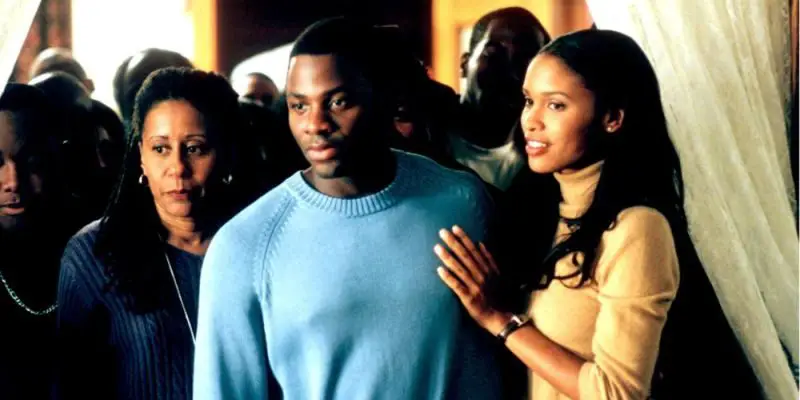
Positive Psychology & Film: Atypical Dating Scripts
Films and culture provide us with scripts that help us make sense of dating and sexuality. Unfortunately, many of the scripts are outdated.

Positive Psychology & Film: Parenting With Children’s Films
“Interest can produce learning on a scale compared to fear as a nuclear explosion to a firecracker.” Stanley Kubrick on the importance and power of curiosity. As educators and parents we want to to care for, nurture, mentor, socialize, and provide for our children to the best of our ability.

SILVER SKIES: A Positive Psychology Film Analysis
Silver Skies shows us how full of love, passion, friendship and fun the lives of the elderly are, and how we can learn from this depiction.

WHILE TIME STANDS STILL: A Positive Psychology Film Review
Elena Miliaresis’ documentary While Time Stands Still tells the story of the hardships of military families – Laurie Agard considers the psychological aspects.
Does content like this matter to you?
Become a Member and support film journalism. Unlock access to all of Film Inquiry`s great articles. Join a community of like-minded readers who are passionate about cinema - get access to our private members Network, give back to independent filmmakers, and more.
Laurie Agard studied Psychology and Writing in graduate school after becoming a Director member of both the Directors Guild of America and the Academy of the Television Arts and Sciences. She associate produced ABC’s Secret Millionaire and wrote, directed, and produced two independent films that premiered on HBO, ABC Family, we TV, as well as networks such as Fox Latin America, Sky TV, Starz, Showtime, and Encore in 45 territories around the world. Her films have received New Comer of the Year awards and Best Children's Feature awards from prestigious organizations such as Kids First!, Hollywood Youth in Film, and the New York Film and Television Festival. She co-directed the Directors Guild of America’s first ever tribute film for and about its female members.













